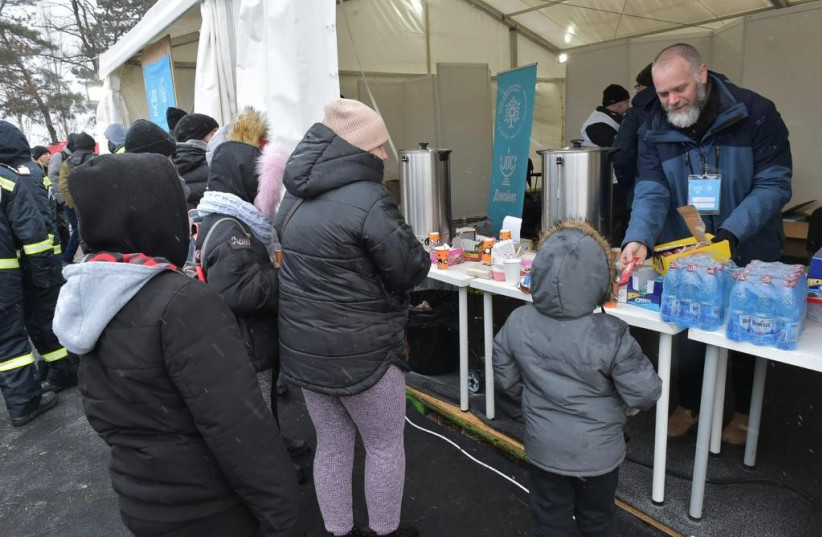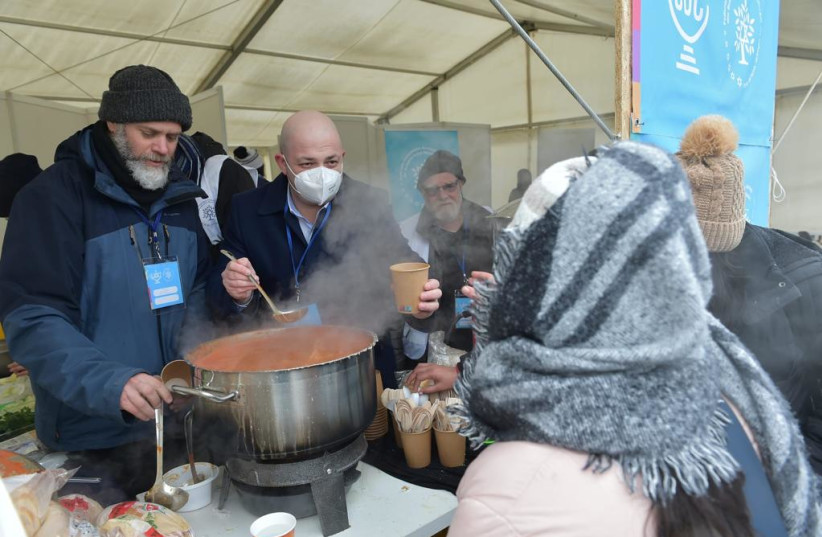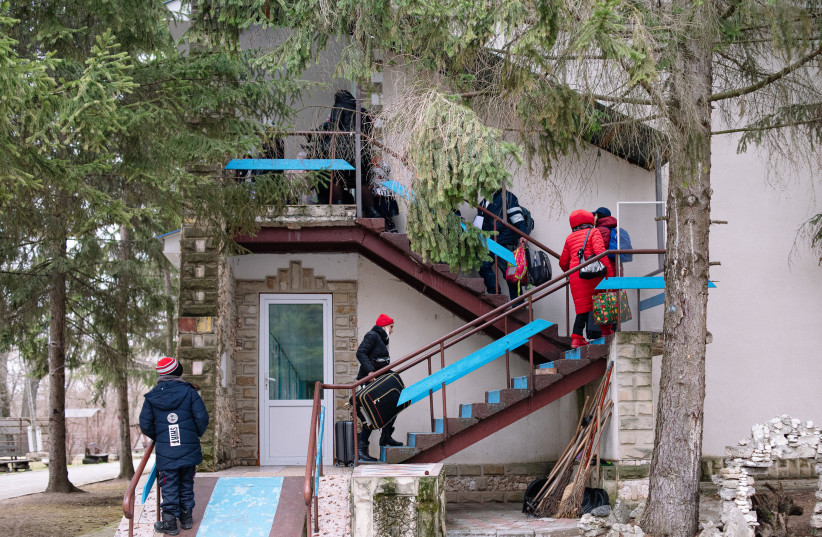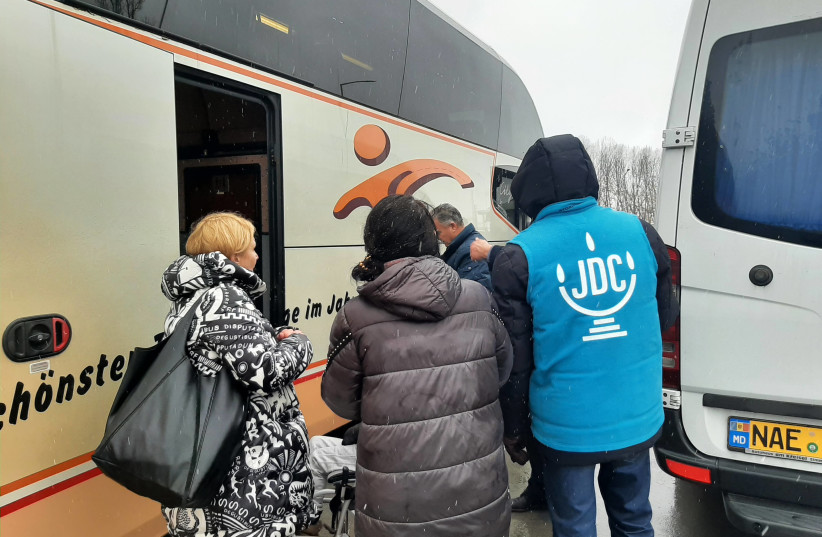Who could imagine that what was once the largest yeshiva in the world is now a refugee camp in Poland for Ukrainian Jews.
“We have about 190 beds in Lublin,” American Jewish Joint Distribution Committee director in Poland Karina Sokolowska said Monday. “Some are regular hotel rooms, but we also have large halls in the building where we put many mattresses on the floor.”
Chachmei Lublin Yeshiva operated in Lublin, Poland, from 1930 to 1939.
Since there are no available hotel rooms in Warsaw, they had to find space, hotels and apartments around the country, Sokolowska said.
“Almost anyone I know in the Jewish community is hosting a Ukrainian family” she said.

The JDC has 500 beds across Poland in temporary refugee camps, Sokolowska said.
“People come to us in shock – they escaped a war,” she said. “Up until now, we didn’t have any element of therapy for the refugees. But we now have psychologists on the way to Poland to assist us in this terrible situation.”
“Until 12 days ago, my job was to promote Jewish education and culture in Poland,” Sokolowska said. “But now, I am dealing with a whole different world. I never thought I would need to run a huge operation for Jewish refugees – definitely not in Poland.”

The JDC works closely with the Jewish community in Warsaw and with Poland’s Chief Rabbi Michael Schudrich.
Sokolowska said it was difficult to track how many people have been taken care of by the JDC since there is so much instability.
“Sometimes we cannot give them a place to stay immediately,” she said. “Sometimes they are told to be picked up in another four hours from the border. In the meantime, they don’t show up since they may have found another person or organization to help them out.”
“They do not know what to do,” she added. “They are literally lost in the incident. Our focus is on Jews crossing the border. This is a huge operation.”
“Nothing will be the same in my life after this situation” Sokolowska said with tears in her eyes. “This tragedy is so intense. It’s bad. What’s going on in Ukraine is terrible.”
The JDC has two storage centers where it keeps large amounts of food, clothes, shoes and other items.
“We ordered 50 pairs of each shoe size – hundreds of pairs of shoes,” Sokolowska said, adding that many of the refugees have fled with open Crocs or shoes that are not suitable for cold weather.
Sokolowska said her biggest fear was that she will not be able to find enough beds for refugees.
“I’m anxious that suddenly two buses will arrive from Dnipro with Jewish refugees,” she said. “We’re working on finding another location in order to make sure we have enough space.”

Israel Sabag, the JDC’s director in Romania, told The Jerusalem Post: “At the border, we built a lovely tent with JDC flags, blue and white flags and the word ‘Welcome’ in Hebrew. The idea is to signal to the Jews that we are here. The place operates 24 hours a day for all refugees. We serve hot soup, coffee, tea, food, local SIM cards, phone chargers, baby food, diapers – pretty much everything you need after a 40-hour ride in a car.”
The crowds cross the border with tears in their eyes, he said, adding: “They had to leave their entire lives behind them in one moment.”
“There are about 1,000 people to whom we gave hotel rooms all over Romania or those who we gave meals and bus rides,” Sabag said. “We prepared thousands of dishes for the Jewish refugees.”

The JDC team in Romania works closely with the Federation of Romanian Jewry.
There are about 20 people in the tent around the clock – most of them volunteers from the Jewish community.
Asked whether the refugees would like to immigrate to Israel, Sabag said: “Many are interested in moving to Israel, but many others decided not to immigrate but rather go to Israel for a 90-day opportunity to try it out. Some refugees will stay in Europe in different European countries until the situation calms down.”
“The Romanian Jewish community has about 6,500 members,” he said. “The Jewish refugees group is almost double than them, and if they actually stay in Romania, this will totally change the character of the Romanian Jewish community.”
